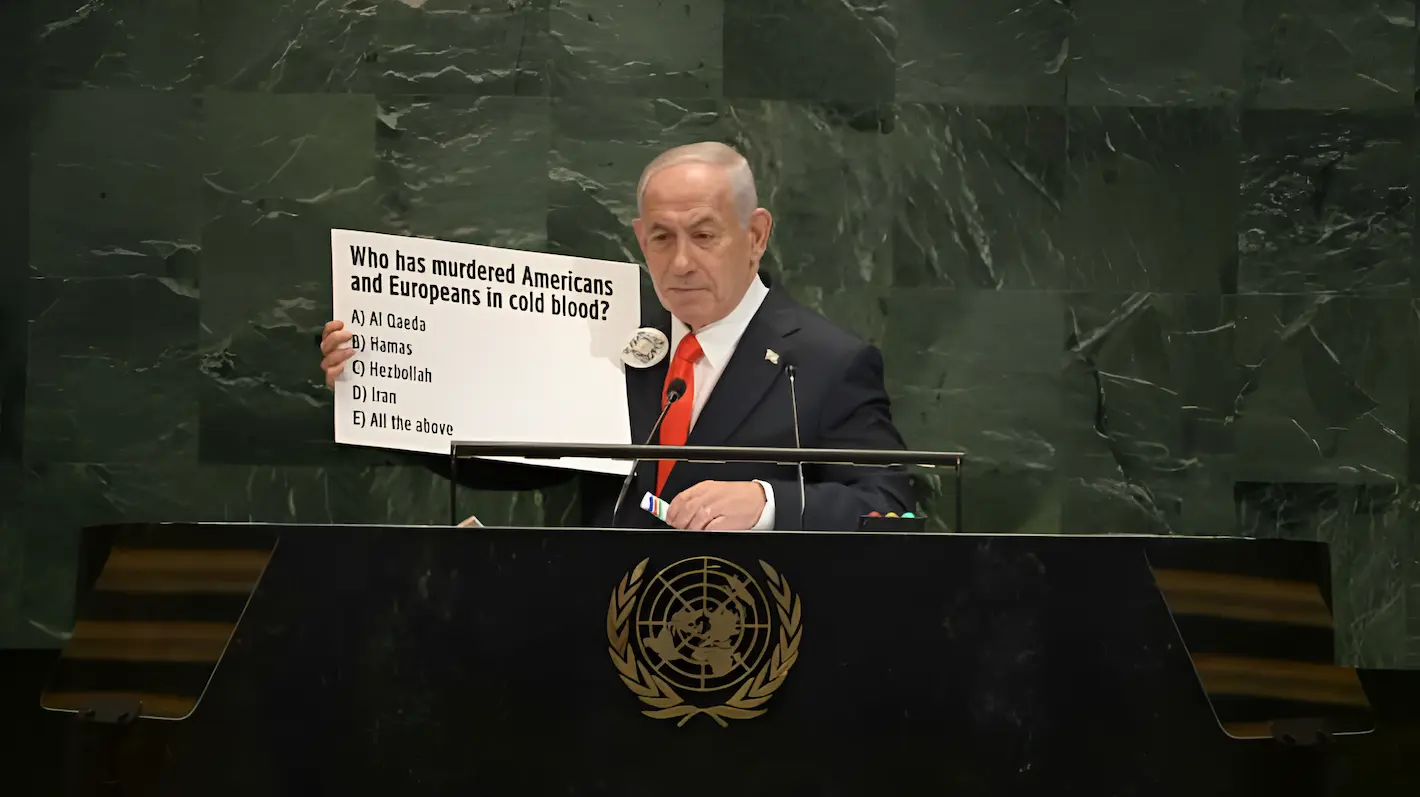
UN delegates walked out during Netanyahu’s Gaza speech, sparking global outrage over psychological warfare, civilian deaths, and rising tensions in the Middle East
Global Shock as UN Delegates Walk Out During Netanyahu’s Gaza Speech
| By Rapid Updates News Team
Mass Walkout Sends a Strong Message
UN Delegates Walk Out – In a dramatic moment at the United Nations General Assembly in New York, delegates from over 50 countries—including Qatar, Ireland, and several Latin American and African nations—stood up and walked out as Israeli Prime Minister Benjamin Netanyahu began his speech on September 26, 2025. The walkout was a coordinated protest against Israel’s ongoing military operations in Gaza, which have resulted in over 41,000 Palestinian deaths since October 2023.
Netanyahu’s speech, which lasted 25 minutes, was intended to justify Israel’s actions as self-defense against Hamas and Iranian influence. However, the timing and tone of the address, coupled with the live broadcast of the speech into Gaza via loudspeakers and hijacked mobile networks, drew sharp criticism from human rights organizations and several governments. Many called the tactic psychological warfare, accusing Israel of deepening trauma among civilians already facing humanitarian catastrophe.
Netanyahu’s Defiant Stand Against Global Recognition of Palestine
During his speech, Netanyahu strongly condemned recent moves by countries like France, Britain, and Spain to recognize Palestinian statehood. He declared that such recognitions “reward terrorism” and vowed to continue dismantling Hamas until all hostages taken during the October 7, 2023, attacks are freed. According to Israeli sources, 101 hostages remain in captivity.
“We will not be lectured by those who ignore the brutal reality of Hamas,” Netanyahu said, pointing to Iran’s alleged role in funding and arming the group. He accused the international community of turning a blind eye to Hamas’s tactics, which he described as using civilians as human shields and operating from hospitals and schools.
His remarks were met with silence from the remaining delegates, while outside the Assembly, protestors gathered with signs demanding a ceasefire and accountability for civilian casualties.
Broadcasting the Speech into Gaza: Psychological Warfare or Strategic Messaging?
One of the most controversial aspects of the speech was Israel’s decision to broadcast it directly into Gaza. Military trucks equipped with loudspeakers rolled through neighborhoods, and mobile networks were reportedly hijacked to push the speech onto residents’ phones. While Israeli officials claimed the move was meant to “inform the people of Gaza about the truth,” critics called it a form of psychological warfare.
“This is not communication. This is intimidation,” said a spokesperson from Human Rights Watch. “People in Gaza are already traumatized. Broadcasting a speech defending the very actions causing their suffering is cruel and manipulative.”
The tactic has sparked debate among international law experts, with some arguing it violates ethical norms and could be considered coercive propaganda. Others say it reflects a new era of digital warfare where information is weaponized as much as artillery.
Global Reactions: Divided Opinions and Calls for Accountability
The walkout and the speech have triggered a wave of global reactions. While some nations, including the United States and Germany, reiterated their support for Israel’s right to defend itself, others called for an immediate ceasefire and independent investigations into alleged war crimes.
Ireland’s Foreign Minister stated, “Walking out was a moral necessity. We cannot sit silently while thousands of civilians are killed and displaced.” Qatar’s delegation echoed similar sentiments, emphasizing the need for humanitarian corridors and international oversight.
Meanwhile, social media platforms lit up with hashtags like #UNWalkout, #GazaSpeech, and #CeasefireNow, reflecting widespread public engagement and concern. Analysts say the incident may mark a turning point in how the world responds to the Gaza conflict, especially as more countries consider recognizing Palestinian statehood.
As the dust settles from this diplomatic drama, one thing is clear: the global community is deeply divided, and the path to peace remains uncertain. The UN walkout was not just a protest—it was a signal that the world is watching, and the stakes are higher than ever.